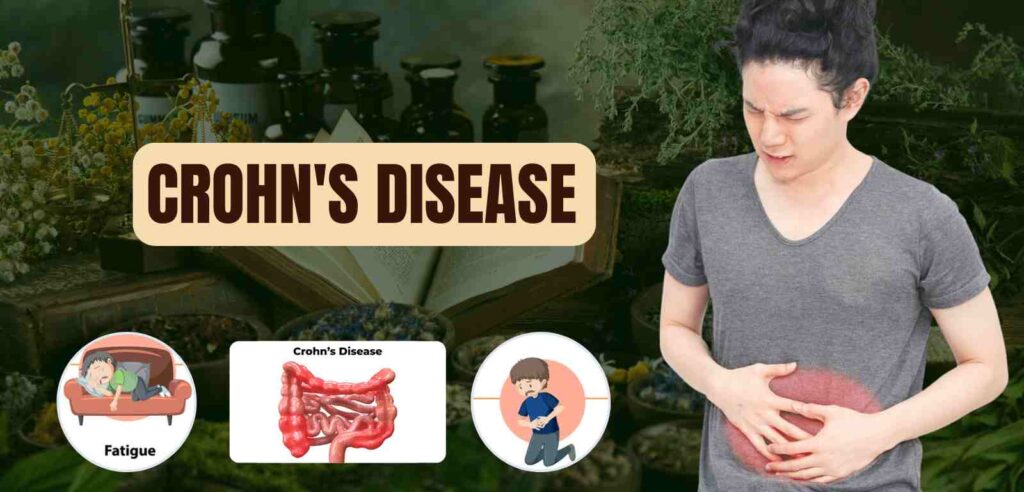
Crohn's Disease
Crohn’s disease is a type of inflammatory bowel disease (IBD) that causes inflammation of your digestive tract, which can lead to abdominal pain, severe diarrhea, fatigue, weight loss, and malnutrition.
The inflammation caused by Crohn’s disease often spreads deep into the layers of affected bowel tissue and can involve different areas of the digestive tract in different people.
However, it’s likely due to an abnormal response of the immune system. Genetics and environmental factors may also play a role in its development.
Treatment for Crohn’s disease usually involves drug therapy or, in certain cases, surgery.
There is currently no cure for the disease, and there is no one treatment that works for everyone.
The goal of medical treatment is to reduce the inflammation that triggers your signs and symptoms, improve long-term prognosis by limiting complications, and improve your quality of life.
If you suspect you have Crohn’s disease, it’s important to consult a healthcare provider for a proper diagnosis and treatment plan.
The exact cause of Crohn’s disease is not fully understood, but it’s believed to be a result of a combination of factors:
Submit An Inquiry
Contact Us
Timing
- 1:00 PM To 6:00 PM
Visit Clinic
1. Diarrhea
2. Fever
3. Fatigue
4. Abdominal pain and cramping
5. Blood in your stool
6. Mouth sores
7. Reduced appetite and weight loss
8. Pain or drainage near or around the anus due to inflammation from a tunnel into the skin (fistula)
1. Immune System: An abnormal reaction of the immune system is thought to be a major factor. The immune system may mistake food, bacteria, and other substances for being foreign. The body then sends white blood cells into the lining of the intestines, where they produce chronic inflammation. This leads to ulcerations and bowel injury.
2. Genetics: Crohn’s is more common in people who have family members with the disease, so genes may play a role in making people more susceptible. However, most people with Crohn’s disease don’t have a family history of the disease.
3. Environmental Factors: Certain elements in the environment may also contribute to the development of Crohn’s Disease, including a high-fat diet or certain types of bacteria.
4. Smoking: Smoking is also associated with a higher risk of Crohn’s disease, and it can lead to more severe disease and a greater risk of having surgery.
- For Clinic visits: E-16/30, Sector – 8, Rohini, Delhi – 85
- For Teleconsultation: 927-874-1850
- Email: info@vaidmishraji.in
- Timing: Mon-Sat (1:00 PM – 6:00 PM)
